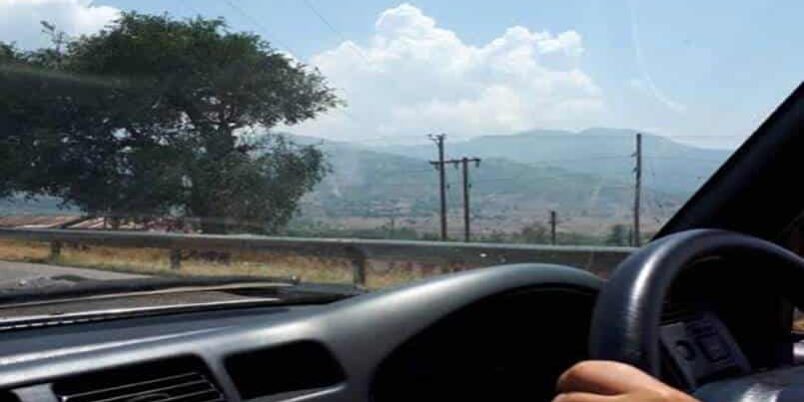Traffic laws and guidelines in Uganda:
In Uganda, traffic guidelines and rules are established to ensure the safety of all road users, including drivers, pedestrians, cyclists, and motorcyclists. Traffic laws in Uganda are governed by the Traffic and Road Safety Act, and these laws aim to ensure road safety and orderly conduct on roadways.
Adhering to traffic rules and guidelines in Uganda is essential for the safety of all road users and it is critical for drivers and other road users to stay educated on these rules and remain vigilant while on the road. In Uganda, traffic violation penalties are critical to enforcing road safety and ensuring compliance with traffic laws. Traffic laws in Uganda are enforced by the Uganda Police Force, particularly the Traffic Police Division.
Let us explore some of the key traffic rules and guidelines that drivers and road users should be aware of:
Driving License: Drivers must possess a valid driver’s license appropriate for the type of vehicle they are operating. For international visitors seeking self drive, an International Driving Permit (IDP) issued by your home country is required. Driving without a valid license fetches you a fine of UGX 100,000-300,000 ( approximately 27-80 dollars) and in some cases, you vehicle may be impounded.
Vehicle Registration: All vehicles must be registered with the Uganda Revenue Authority (URA) and display a valid registration number plate. Vehicle operators must also renew their licenses annually. When renting a car with a car rental agency, make sure that their registrations and licences are up to date to avoid any inconvenience along the way.
The fines for driving a car without registration may range between $100-$200 and in the worst case scenarios, your vehicle may be impounded and the driver jailed. Note that if you’re driving a rental car without proper registration, the car rental agency is liable and you should not pay these fines.
Insurance: In Uganda, vehicle insurance is essential for protecting vehicle owners from financial losses resulting from accidents, theft, or damage. Vehicles must have appropriate third-party insurance coverage with an insurance sticker on the windshield. It covers damages or injuries caused to third parties in the event of an accident. It does not cover the policyholder’s vehicle or personal injuries sustained by the driver or passengers.
Some car rental agencies also have comprehensive vehicle insurance which provides broader coverage. This insurance covers both third-party liabilities and damages to the insured vehicle.
It may also include additional benefits such as coverage for personal belongings, medical expenses for passengers, and roadside assistance.
Penalty: Fines of UGX 200,000 or more; offenders may also be required to show proof of insurance before being allowed to drive again.
Speed Limits: Every country has different speed limits which must be observed by both local and international drivers. For Uganda, the speed limits are 50 km/h in urban areas, 80 km/h on rural roads and 100 km/h on highways.
In national parks and school zones, driver’s are expected to observe 40kmph speed limits and if caught exceeding these limits, expect a fine of $30-$100 and if you’re driving significantly over the limit, you risk having your drivers licence suspended.

Alcohol and Drug Use:
The legal blood alcohol concentration (BAC) limit is 0.08% and driving above that limit subjects you to a fine of $86 and above. You may also face possible imprisonment (up to a year), and suspension of the driver’s license.
In Uganda, traffic police usually carries out the drive trial operations locally known as “Kawunyemu” as in blow in; where drivers are expected blow into the breathalyser machine to test their alcohol levels.
These operations usually happen on weekends on specific access roads to areas that have so many bars. Drinking alcohol can be a good way to unwind for some people but in most cases, they don’t realise that they have taken too much. Should you find yourself in this situation, consider getting Uber but do not be tempted to drive for your own safety and the safety of other road users.
Vehicle Maintenance and service: All vehicles on the road are expected to be in good mechanical condition with functional lights, indicators, brakes, and mirrors and should be serviced regularly. Vehicle owners are encouraged to regularly inspect their vehicles in case of any mechanical faults and have them fixed.
If you’re renting a car for self drive, endeavour to inspect it and rest drive it if possible before heading out on a long trip to avoid breakdowns and potential fatal accidents.
In case your car breaks down, use hazard lights( double indicators) to indicate breakdowns or problems, particularly it safely on the roadside to avoid obstructing traffic.
Vehicles in dangerous mechanical conditions may be impounded until they pass the safety inspection and the driver will be fined $30-$100.
Other regulations:
- Driving in Uganda is on the left side of the road
- The use of seat belts is mandatory for all vehicle occupants, both in the front and back seats.
- Use of mobile phones while driving without a hands-free device is prohibited.
- Obey all road signs, signals, and markings, including traffic lights. Running a red light results into a fine of UGX 100,000-200,000.
- Always yield to pedestrians at designated crossings and be cautious when driving in the school and residential zones.
- Vehicles already on the roundabout have the right of way.
- Only overtake where it is safe and legal to do so. Maintain a safe distance from the vehicle in front.
- Use headlights when driving at night and be extra cautious of pedestrians and animals on the road.
- Children under the age of 12 are not allowed to sit in the front seat. Child restraints and seat belts must be used for young children.
Persistent offenders may accumulate points on their driving records, which can result in license suspension after reaching a certain threshold. For serious violations, especially those resulting in injury or death, offenders may face criminal charges leading to imprisonment. Many traffic violations are prosecuted in specialized traffic courts, where offenders may appear to contest charges.
Road safety is a shared responsibility, and compliance with traffic laws is essential for the safety of all road users. Drivers are encouraged to stay informed about current traffic laws, participate in road safety campaigns, and practice safe driving habits to reduce accidents and fatalities on the roads. For more information about the traffic guidelines and regulations, contact GoFurther 4×4 Car Rental and be sure to have a smooth self drive trip.






